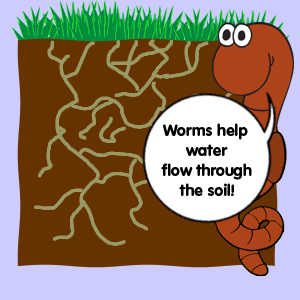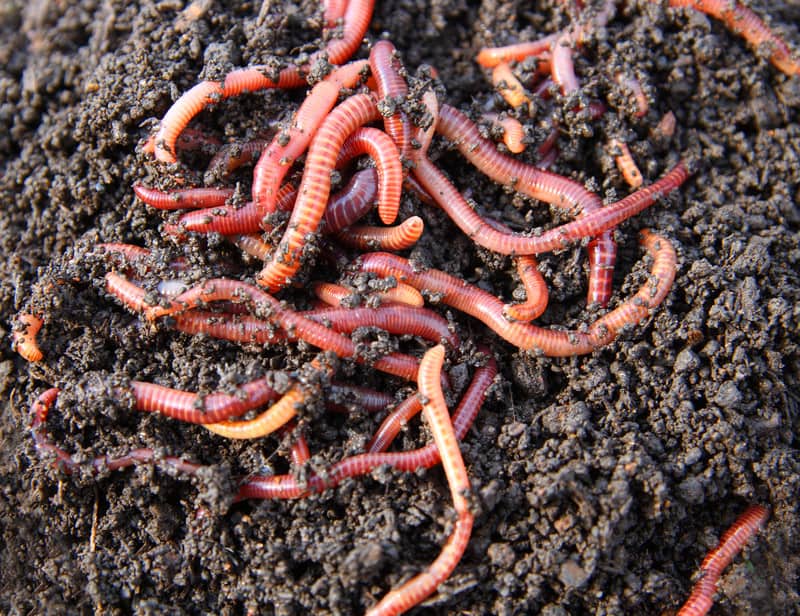9 Easy Facts About North Carolina Worms Explained
9 Easy Facts About North Carolina Worms Explained
Blog Article
The 5-Second Trick For North Carolina Worms
Table of ContentsThe Basic Principles Of North Carolina Worms The Single Strategy To Use For North Carolina WormsA Biased View of North Carolina WormsThe smart Trick of North Carolina Worms That Nobody is Discussing
Instance: 1-gallon of worm castings to 4 gallons of potting mix. 1/2 mug in the base of the growing hole for smaller plants. 1 mug for bigger plants.
The enhancement of tea can also include increased microbial biomass to your soil. You can constantly side-dress your plants with worm castings at any moment. Just remember, the microbes will die if revealed to UV rays (Sun), so be certain to cover the spreadings with an inch or so of soil.
This baffled them for years up until the testing techniques ended up being better. It would obtain better(with even more spreadings), degree off, and after that decrease. Too several worm castings would certainly increase the growth to a speed that the plant can not recuperate from.
North Carolina Worms Fundamentals Explained
Several herbicides work with this same principle. So, 20% by volume seems to be the "Sugary food Area". I have stated the merits of worm spreadings for regarding 2000 words. What regarding the opposite of the coin? Nothing is best. Worm castings are no different. It requires time to create high quality worm castings.
You can purchase them which leads to second. Worm spreadings absolutely set you back even more than chemical fertilizers. Worm spreadings are on the less costly end of natural fertilizers. You will have to determine what is more vital. It is simple to create small quantities of worm spreadings. (50 gallons annually) It is a much more challenging and extremely expensive financial investment to generate big amounts of worm spreadings (Lake Hickory Bait).

Producing a healthy and balanced soil might be the biggest advantage of worm castings. We went over worm spreadings NPK and additionally the proper nutrient analysis that must use to worm spreadings.
The 4-Minute Rule for North Carolina Worms
We spoke concerning some of the negative aspects connected with worm castings. I covered a great deal of product in this write-up.
The vertical burrows are normally open, although the worms top the top with residue and waste matter. Origins require oxygen for their growth, whereas they produce carbon dioxide that needs to leave the dirt.
Earthworms raise porosity by 2 devices: (1) by producing long-term burrows, and (2) by improving dirt gathering. Aggregation is enhanced by the mixing of dirt and natural matter in the earthworms' guts. Lake James Bait. These highly stable accumulations are deposited by some earthworms in their burrows, and by others at the surface area of the dirt


In one more research study, earthworms were approximated to consume 4 to 10 percent of the leading 6 inches of the soil annually. Dirt compaction minimizes the porosity of the dirt.
5 Simple Techniques For North Carolina Worms
Normal earthworm populations can easily consume 2 lots of completely dry issue per acre annually, partly absorbing and blending it with soil. The importance of earthworms to blend surface area residue with dirt comes to be extremely clear in soils that do not have any earthworms. Many of our Pennsylvania soils have at the very least some earthworms, and the impact of their full lack, for that reason, can not be noted.
(https://aajkaltrend.com/page/business-services/north-carolina-worms)In these dirts, the formation of topsoil with practical raw material web content did not occur, resulting in inadequate crop growth. As soon as the reason was established, the federal government of the Netherlands started a campaign to introduce earthworms. After the intro of the earthworms, a dark topsoil layer was created, and plant growth enhanced significantly.
They live largely from partly broken down raw material that is currently included in the dirt. They consume their method with the soil, producing horizontal burrows that they loaded with their excrement. These species consume huge quantities of dirt that they blend with absorbed plant residue in their guts. or anecic species stay in irreversible upright burrows that can be 5 or 6 feet deep.
Their burrows remain open, although they cover the leading with crop residue that they pull to the entry. These types ingest substantial quantities of soil that they blend with digested deposit in their digestive tracts. Their excrement is mainly transferred at the surface area of the dirt. The nightcrawler Lumbricus terrestris is the most prominent participant of this group.
Report this page